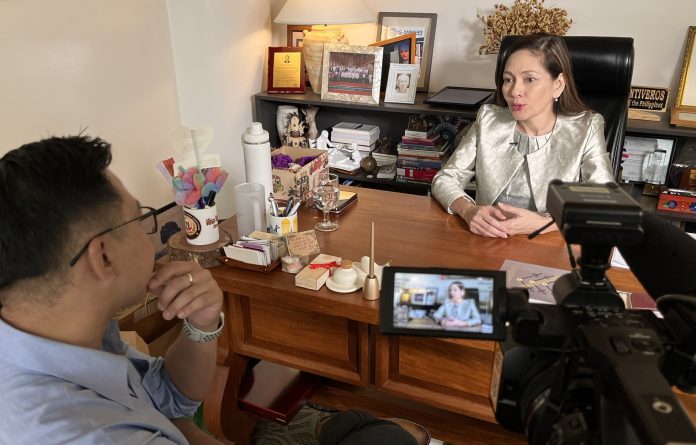I’ve been following, with more than usual interest, a Facebook brouhaha among academics debating whether Senator Risa Hontiveros achieved anything in her face-off with former President Rodrigo Duterte.
It began when a professor from Davao posted that Risa achieved nothing, sparking a flurry of responses from professors in other provinces. The Davao professor, backed by his followers, did not take the criticism lying down. Unafraid to toot his own horn, he cited his academic credentials and the number of likes his posts received.
Here’s my take on what Risa has achieved. From the outset, I make it clear that I believe she accomplished much. If I may be facetious, I’d say that asking sensible questions in a Senate filled with sycophants is already a tremendous achievement.
But I also want to address this seriously. To make the issue more accessible beyond academic philosophy, I’ll avoid academic jargon and instead cite a movie I watched decades ago, A Few Good Men, as a point of comparison.
In this movie, two Marines are accused of killing a fellow Marine perceived as weak. Lt. Kaffee (Tom Cruise) is assigned as their defense lawyer and uncovers that the order to kill may have come from Colonel Jessup (Jack Nicholson), a commander who believes that protecting the state sometimes requires extreme actions. Jessup is quick to justify himself, claiming he’s merely doing his duty to save lives.
The defense strategy is to argue that the Marines were following Jessup’s orders—a simple plan, but challenging to execute. After all, Colonel Jessup is a highly respected officer with a commanding presence and a penchant for verbal intimidation at the slightest provocation. Sound familiar?
In the movie, an unwritten Marine Corps rule called the “Code Red” allegedly permits actions against soldiers considered weak. The question becomes whether Colonel Jessup ordered the Code Red. During cross-examination, Jessup is disdainful, questioning the defense attorney’s experience: “Have you ever spent time in the infantry?” (The Duterte equivalent: “Have you ever been a mayor?”)
He goes on to assert, “We live in a world with walls, and those walls need to be guarded by men with guns…. I have a greater responsibility than you can possibly fathom…. You have the luxury of not knowing what I know…. You have no idea how to defend a nation…”
Lt. Kaffee, however, is undeterred. Gradually, he exposes flaws in the Colonel’s narrative, ultimately leading to the climactic question, “Did you order the Code Red?” to which Jessup explosively replies, “You’re damn right I did!” Despite the self-incriminating nature of his admission, he remains unapologetic, stating, “I did what I had to do, and I would do it again.” Military police promptly move to prevent his escape.
The Senate inquiry may have lacked Hollywood’s drama, as real-life trials often do, but the parallels are striking. In the Senate, a resource person appeared intent on making the inquiry his show, only to be met by an unyielding lady senator.
She ultimately asked, “Is it true that you said you prefer to see a criminal dead than languishing in prison?” Without remorse, the former president replied, “Oo, anong pakialam ko sa kanila.” He even added, “I have been killing people for a long time.”
Those who say nothing was achieved must have been watching different clips. But let’s assume, for the sake of argument, that there was no tangible outcome from this confrontation. Even then, standing up to a bully is an achievement in itself. Facing a popular bully without compromising one’s principles is a tremendous feat.
After the confrontation, Hontiveros could look in the mirror and feel proud of the reflection staring back. Anyone who has studied or taught “The Philosophy of the Human Person” should recognize that the main issue isn’t tangible results—it’s personal authenticity.
Returning to the movie title: in the Senate, there was only one good man, and she happens to be a woman.
Fr. Ramon D. Echica is the Dean of Studies of the San Carlos Major Seminary. He obtained his doctorate in Sacred Theology from the Catholic University of Leuven (Katholieke Universiteit Leuven) in 1998.









